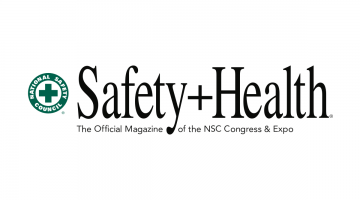Return to work, accommodation and support
IWH has a long history of conducting research on practices, policies and processes that help workers sustainably return to work after an illness or an injury. This page pulls together IWH research and resources on employer supports, job accommodations and modifications, as well as other related issues such as disclosure of disability.
Featured

IWH Speaker Series
Using cannabis to manage symptoms of work-related injuries: Experiences of injured workers in Ontario
Published: February 24, 2026

At Work article
Inclusive employment strategies, resources showcased at symposium
Published: November 12, 2025
IWH Speaker Series
IWH Speaker Series
Using cannabis to manage symptoms of work-related injuries: Experiences of injured workers in Ontario
Governments around the world are increasingly making cannabis legal for medical and non-medical uses, and public interest in the therapeutic benefits of cannabis continues to grow. Pain, sleep difficulties, and poor mental health are among the most cited reasons for using cannabis therapeutically; they're also symptoms that are commonly associated with work-related injuries. Despite these parallels, little is known about workers’ experiences using cannabis after a work-related injury. In this presentation, Dr. Nancy Carnide will share findings from a series of qualitative interviews with workers who have sustained a work-related injury. She discusses their decisions to use cannabis, their perceptions of its impacts, and their experiences using cannabis while returning to work.
Published: February 2026
Journal article
Journal article
Qualitative evaluation of a pilot mental health program for public safety personnel with post-traumatic stress disorder
Published: PLOS Mental Health, January 2026

At Work article
Inclusive employment strategies, resources showcased at symposium
At a two-day event symposium hosted by Inclusive Design for Employment Access (IDEA), stakeholders had an opportunity to share and learn about new programs, research, and resources aimed at helping employers build their disability confidence.
Published: November 2025

Impact case study
Word spreads about IWH tools, thanks to stakeholders' support
Since the release of two tools designed to support the sustained employment of people with chronic and episodic conditions, word has spread quickly to new audiences who have learned about and adopted them. That's thanks to organizations that promoted the tools and helped them reach the hands of workers, employers and post-secondary students who are about to move forward in the labour market.
Published: October 2025
Journal article
Journal article
Return-to-Work outcomes following mental health treatment among public safety personnel disabled by post-traumatic stress disorder
Published: Journal of Occupational Rehabilitation, October 2025

At Work article
IWH knowledge transfer and exchange approach a ‘perfect fit’ for episodic disabilities project
Researchers and knowledge transfer and exchange (KTE) staff at the Institute for Work & Health (IWH) put a lot of focus on how to tap into partner expertise to refine research goals and facilitate the sharing and uptake of research findings. What does that look like in practice? This article illustrates how a seven-year partnership project used IWH’s approach to KTE to develop and share usable outputs from the research findings.
Published: September 2025
Journal article
Journal article
The Job Demands and Accommodation Planning Tool (JDAPT): a nine-month evaluation of use, changes in self-efficacy, presenteeism, and absenteeism in workers with chronic and episodic disabilities
Published: Journal of Occupational Rehabilitation, September 2025

IWH in the media
Share health info or not? Free tool helps workers decide
A new online tool from Canada’s Institute for Work and Health is intended to help people consider whether to disclose personal health information at work. The free Decision-Support for Communicating about Invisible Disabilities that are Episodic (DCIDE) provides personalized guidance for people grappling with disclosure questions.
Published: Safety+Health, August 2025

Impact case study
Being part of an IWH research partnership helped health charities meet their communities’ needs
The seven-year partnership project, titled Accommodating and Communicating about Episodic Disabilities (ACED), showcases the role partner organizations can play in developing user-friendly research products and in disseminating these products more widely. The partnership enhanced both the quality of the research and the partners’ ability to serve their clients.
Published: August 2025
Journal article
Journal article
Why are disclosure decisions so difficult? Understanding factors that encourage and discourage workers with a chronic disabling condition from disclosing health information at work
Published: Journal of Occupational Rehabilitation, August 2025